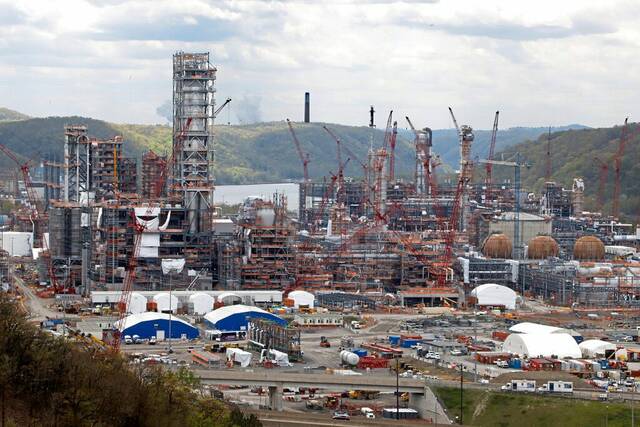Pennsylvania has built much of its history on energy, from the coal that fueled the steel industry to the first oil pumped from the ground to the natural gas being pried out today.
That has built up the Keystone State. It also has left a legacy of environmental fallout that still consumes us. The energy industry continues to be an important part of the economy — balanced with ongoing ecological concerns.
Most recently, that was represented in a negotiated settlement between the Department of Environmental Protection, Shell Pipeline Co. and Shell’s contractor, Minnesota Limited.
DEP performed 67 inspections of the 45-mile Falcon pipeline while it was being built. Even before operation, there were issues with leaks into waterways, including the Ohio River and Beaver County’s Ambridge Reservoir.
The leaks weren’t negligible. They resulted in 48,000 gallons of drilling fluid polluting the waters. More importantly, when the leaks occurred, no one reported them. Those failures translated to a $670,000 fine.
On the one hand, this proves DEP did its job. It performed the inspections. It followed up as problems were uncovered. It levied penalties accordingly.
But why is that all that can be done?
The fines Shell will pay the state are nothing compared to the money it receives from Pennsylvania. The Shell refinery in Beaver County that is connected to gas-processing plants by the pipeline comes with $1.5 billion in state tax incentives.
Shell isn’t alone. Pennsylvania loves to hand over tax breaks to encourage businesses to move in, build new or expand.
But why not marry DEP’s diligence to something with a little more bite when it comes to a business functioning on the state’s dime? Why not treat corporate welfare recipients more like people who get public money?
If someone went to jail while receiving public assistance or Supplemental Nutrition Assistance Program funds, the state doesn’t just negotiate a deal for how much of a penalty will be paid. The funding gets cut off — at least until the issue is resolved.
Energy companies are important partners in Pennsylvania when it comes to job creation and economic investment. But partners should be held accountable for their actions and not paid off with more money than their penalties for bad behavior.








